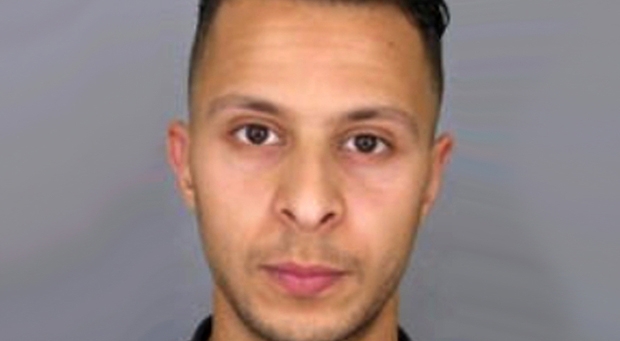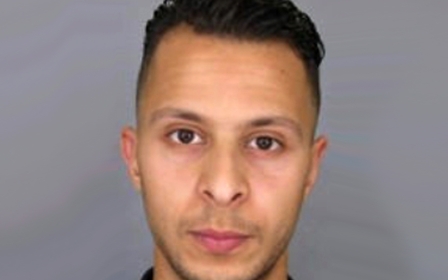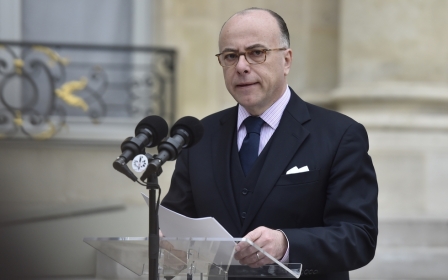Salah Abdeslam 'backed out of Paris suicide attack'

Salah Abdeslam initially planned to blow himself up outside the Stade de France during the Paris attacks but changed his mind, a prosecutor has alleged, after Europe's most wanted man was charged with "terrorist murder" for his role in the November assaults.
The 26-year-old, who was caught after being shot in the leg in a police raid in Brussels on Friday, was also charged with participating in a terrorist group. He was then taken to a maximum security prison in Bruges.
Paris prosecutor Francois Molins said that Abdeslam told interrogators he initially "wanted to blow himself up" at the Stade de France stadium before changing his mind.
A total of 130 people were killed in the 13 November gun and suicide bomb attacks in Paris, which targeted the Stade de France football stadium as well as bars, restaurants and the Bataclan concert hall.
The assaults were claimed by the Islamic State (IS) group.
Days after the attacks, an explosives-filled suicide vest was found in Paris in an area where mobile phone signals indicated Abdeslam had been.
French President Francois Hollande said shortly after Abdeslam's arrest Friday that he wanted to see him transferred to France as quickly as possible to face prosecution for the deadly attacks.
Abdeslam's lawyers said he would oppose the extradition.
Legal experts said this could delay but not prevent his handover to the French authorities under a European Arrest Warrant which the EU introduced specifically to speed up extradition cases.
The French justice ministry said that 90 days was the maximum amount of time it would take for Abdeslam's transfer.
Abdeslam's arrest in Molenbeek, Brussels, was hailed by European and US leaders, while French Interior Minister Bernard Cazeneuve said it dealt a "major blow" to IS militants operating in Europe.
But the minister warned Saturday that the threat level remained "extremely high" and said France was deploying extra police officers to its borders to step up controls following discussions with Interpol.
"The operations of the past week have enabled us to incapacitate several individuals who are clearly extremely dangerous and totally determined," Cazeneuve said after the meeting.
Abdeslam has told investigators he had been planning to target Brussels, Belgium's Foreign Minister Didier Reynders said on Sunday.
"...he was ready to restart something in Brussels, and it may be the reality because we have found a lot of weapons, heavy weapons, in the first investigations and we have found a new network around him in Brussels," Reynders was quoted in a statement as saying at a panel discussion in the Belgian capital.
Hollande, who was in Brussels for an EU summit when the raid took place, described Abdeslam as "directly linked to the preparation, the organisation and, unfortunately, the perpetration of these attacks".
The Belgian press said Abdeslam's capture restored the country's honour, tarnished by perceived intelligence and police blunders before and after the attacks, which appear increasingly to have been planned and coordinated in Brussels.
As well as capturing Abdeslam in Friday's raid, police arrested a man by the name of Mounir Ahmed Alaaj, also known as Amine Choukri. He faces the same terrorism charges as Abdeslam.
New MEE newsletter: Jerusalem Dispatch
Sign up to get the latest insights and analysis on Israel-Palestine, alongside Turkey Unpacked and other MEE newsletters
Middle East Eye delivers independent and unrivalled coverage and analysis of the Middle East, North Africa and beyond. To learn more about republishing this content and the associated fees, please fill out this form. More about MEE can be found here.



